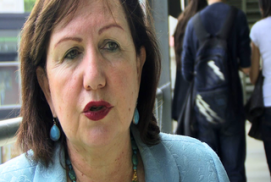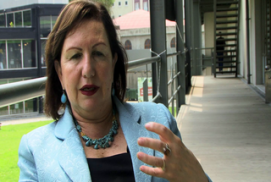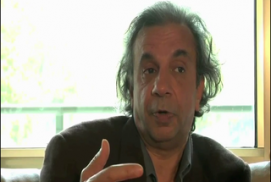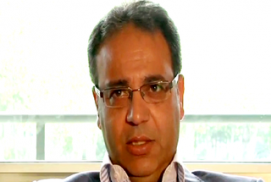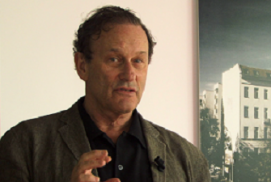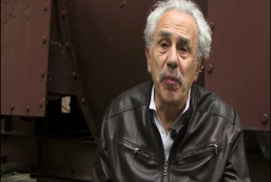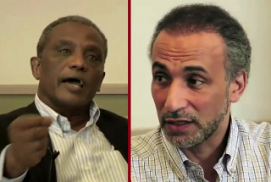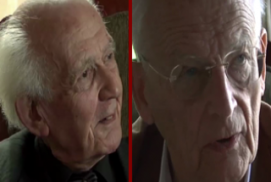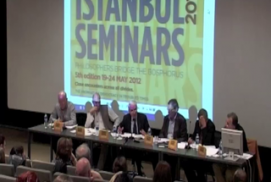
Videos

- Seyla Benhabib 14 June 2013“Is the Westphalian map still helpful in a globalizing world?” asks Political philosopher Seyla Benhabib from Yale, “or do we rather need to start thinking across borders and boundaries to really achieve democracy and find solutions to the transnational claim for rights?”. Interviewed during ResetDoC’s Istanbul Seminars, she suggests we should start considering transnational sights of democracy and rights claims across the porous national borders of our globalized world.Watch Part 1 of this Video
- Seyla Benhabib 29 May 2013Do universal rights claims need to be contextualized? And how does this happen? At our Istanbul Seminars, we asked Professor Seyla Benhabib from Yale University. How do the voices of the excluded – women, immigrants, minorities – get included into the public sphere? Through a process of democratic iterations and jurisgenerativity – Prof. Benhabib explains – linking the normative, utopian aspect of legal claims and the very process of questioning, confrontation and dialogue. Rights always require interpretation or, to be more precise, iteration in a specific context. Watch part 2 of this video
- Akeel Bilgrami 30 April 2013“I am very interested in the concept of identity in politics, that is how people allow themselves to be mobilized in politics on the basis of something that theorists, as well as people in ordinary talk, call their ‘identities’. I try to define the concept of identity in terms of people’s fundamental and deepest commitments: this means that I am interested in a notion of identity in which people endorse certain things about themselves and make them into commitments…it could be their gender, their nationality or their race”, says political philosopher Akeel Bilgrami from Columbia University. But what happens to our liberal doctrines and liberal ways of understanding the polity when one finds people mobilized on the basis of identity? We asked Professor Bilgrami during a past edition of our Istanbul Seminars.
- Zaid Eyadat 10 April 2013“Islam has been used and politicized, so not having a secular state is a danger for the nature of Islam itself”, says Zaid Eyadat, professor for political science at Jordan University, interviewed during Reset-Dialogues’ Istanbul Seminars 2011. The so-called “Amman message” has opened dialogue and discussion among scholars and the Arab Spring triggered important social change. Now people demand their voices to be heard.Interview by Nina zu FürstenbergFilmmaker: Nikolai EberthEditing: Anna Fanuele
- 4 March 2013“Society needs symbols, myths, narratives…and modernity cannot just be rationalization”, explains Jeffrey Alexander, Lillian Chavenson Saden Professor of Sociology and Co-Director, Center for Cultural Sociology at Yale University. “We need to understand the power, the energy and the glue that keeps civil society together and motivates people”, from Occupy to Tahrir Square, says Alexander, by trying to redefine the cultural in social theory. Myths, narratives and iconic symbols have disappeared in the course of modernization… But how can cultural sociology bring these important ideas back to the theory of democracy? Reset-Dialogues has interviewed Jeffrey Alexander at Istanbul Seminars.
- 15 February 2013In order to create a new democratic political order the initial transformation process needs even more participation and a democratic constituent power, argues political scientist Andrew Arato at Reset-Dialogues’ Istanbul Seminars. Democracy making is a consensual process with an active input from civil society groups, and not just from elites. In Egypt this constituent democratic form never really emerged yet, also because the Brotherhood allowed the military to impose its own rules, asking for quick elections in return. Andrew Arato is the Dorothy Hart Hirshon Professor of Political and Social Theory in the department of sociology at The New School University, New York City.
- 4 February 2013Many are now wondering whether organized forces in Cairo will take over the revolution, as happened a century ago when the Bolshevik fringe of Russian revolutionaries took hostage the spontaneous and plural movements, imposing its own purposes and ideology. Is this fear justified? Does this comparison with the October Revolution make sense? What instead remains of the wave of protests that swept across Israel in the summer of 2011? There too the better organised and conservative forces seem to have got the better of the spontaneity of those movements. Is it after all possible to envisage serious change without organisation? At the Istanbul Seminars held by Reset-Dialogues, in May 2012, we posed these questions to Israeli philosopher Avishai Margalit. An interview by Nina zu Fürstenberg
- 11 January 2013Two of the most influential reformers from “within” Islam, Tariq Ramadan and Abdullahi An-Na’im are discussing what shari’a is and should be: a set of principles and morals for believers, never a body of law to be enforced by the State? Both wish democracy, equality amongst citizens, human rights. But they also disagree: Tariq Ramadan believes shari’a should be named in the Arab constitutions as Muslims draw principles of justice for change from within their own tradition and religion. For An- Na’im, on the contrary, the religious needs to be kept far from the political: only a secular state can guarantee the realization of the Islamic objective of justice in Muslim societies.
- Europe in a Global World – This conversation between Zygmunt Bauman and Alain Touraine took place in Reset-DoC’s Istanbul Seminars.
- 7 June 2012The second Roundtable of Reset-Dialogues Istanbul Seminars 2012 (May 19-24 2012) “The promises of democracy in troubled times” took place on Sunday May 20th, 2012 at Istanbul Bilgi University. Former President of Iran, his Excellency Seyyed Mohammad Khatami, sent us his paper about Overcoming Postcolonialism: from the Civilizational Dispute to the Renewal of Dialogue. In this roundtable, Giuliano Amato, Giancarlo Bosetti, Alessandro Ferrara, Ali Khoshroo, Ramin Jahanbegloo and Roberto Toscano discussed this subject. The next roundtables will be screened online soon.More info about Istanbul Seminars 2012 here


